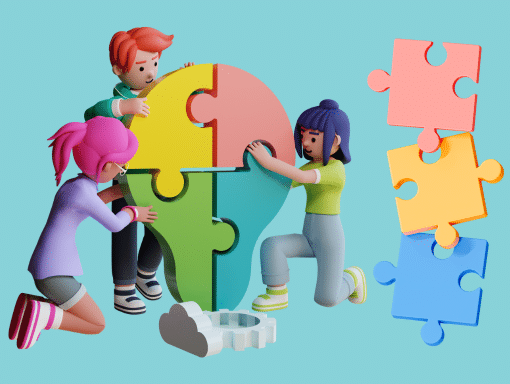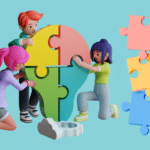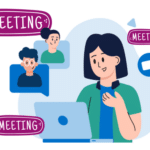
In my years as a behavioural scientist and sales psychology strategist, I’ve learned one thing above all: diversity isn’t just good ethics, it’s excellent psychology. In business, this principle holds especially true. A team diverse in thought, background and experience doesn’t just look good on paper; it brings a richness to your customer service that can’t be replicated by even the most advanced AI. So, let’s talk about how, through the lens of behavioural psychology, you can build a team that truly resonates with your diverse customer base.
Understanding the Human Fabric of Teams
People are like puzzles. Each one of us is shaped by our unique experiences, thoughts, and backgrounds. When you bring these different ‘puzzle pieces’ together in a team, you create a mosaic of perspectives that can tackle problems from angles you didn’t even know existed. This isn’t just beneficial; it’s necessary in a world where your customers are as varied as your team members.
In this article, I would like to highlight my “10 Commandments” of diverse teams, which drives the engine of an unstoppable business.
1. The Power of Different Perspectives
Think back to the last time you solved a difficult problem. Chances are, you didn’t do it by repeating the same thought patterns. You needed different viewpoints. In psychology, we call this cognitive diversity and it’s a goldmine for creativity and problem-solving in business. It’s about valuing the ‘out-of-the-box’ thinker as much as the data-driven analyst.
2. Cultural Empathy: More Than Just Business
We often talk about cultural diversity in terms of statistics, but let’s get real: it’s about understanding and connecting with each other on a human level. This is where cultural empathy comes in. It’s the ability to genuinely understand and share the feelings of someone from a different cultural background. In a business, this translates to services and products that resonate on a deeper, more personal level with customers.
3. Life Experiences: The Unseen Drivers
Our life experiences shape us in profound ways. They influence how we view the world, how we interact with others and how we solve problems. In a team, these experiences become an unspoken asset. They guide us in understanding the varied needs and expectations of our customers, often in ways we don’t consciously realise.
4. Creating a Space Where Everyone Belongs
An inclusive environment isn’t just a nice to have. It’s a must-have. It’s where every team member feels valued and heard. This isn’t just about workplace harmony; it’s about creating a space where everyone can bring their whole selves to work. That’s when the magic happens – when people feel secure, they’re more creative, more open and more invested.
5. Embracing Learning as a Journey
Learning about diversity isn’t a one-time training session; it’s an ongoing journey. It’s about continuously challenging our own biases and learning from each other. In a business context, this means staying adaptable and always being ready to evolve with our customer’s needs.
6. Your Team, Your Customers
It’s simple: your team should reflect your customers. This isn’t just about demographics but also about psychographics; understanding your customers’ worldviews, needs and preferences. When your team can genuinely relate to your customers, trust and loyalty follow.
7. Emotional Intelligence: The Heart of Service
In the end, business is about relationships, and relationships are built on emotions. Teams that are emotionally intelligent can navigate the complexities of human emotions, both within the team and with customers. This leads to better communication, better negotiation, better partnerships and ultimately, better customer service.
8. Nurturing a Culture of Respect and Understanding
Respect and understanding are the bedrock of any diverse team. This involves actively listening to each other and valuing different viewpoints. When team members feel respected, they are more likely to contribute their best work. This culture of respect extends beyond the team to how customers are treated, fostering a climate of mutual trust and appreciation.
9. The Synergy of Diverse Skills and Talents
Diversity is not just about who we are; it’s about what we bring to the table. A diverse team combines a range of skills, talents and expertise, making it well-equipped to handle various challenges and opportunities. This synergy allows for innovative solutions that a more homogenous team is bound to miss.
10. Adaptability in a Changing World
In a world that’s constantly changing, adaptability is key. Diverse teams are better at adapting because they have a wide array of perspectives and lenses to draw from. This adaptability is essential for businesses looking to stay relevant and responsive to the ever-evolving needs of their customers.
Wrapping It Up: People First
In the digital age, where technology is king, it’s easy to forget the power of the human element. But here’s the truth: machines don’t build relationships; people do. By focusing on building a diverse, empathetic and emotionally intelligent team, you’re not just investing in your business; you’re investing in the people who make your business what it is. And that’s something no machine can replicate.
Embracing diversity in your team must no longer be considered as fulfilling a quota or appearing progressive. It’s about recognising and valuing the unique human elements that each person brings. It’s about seeing the beauty in our differences and the strength that comes from them. When we do this, we don’t just build better teams; we build a better world of business, one that understands, appreciates and serves all customers with the kindness, respect and empathy they deserve.
………………………………….
Join more than 10k subscribers and learn how to apply Behavioural Science and Psychology to your business.
Subscribe to our newsletter “The SCOOP”






